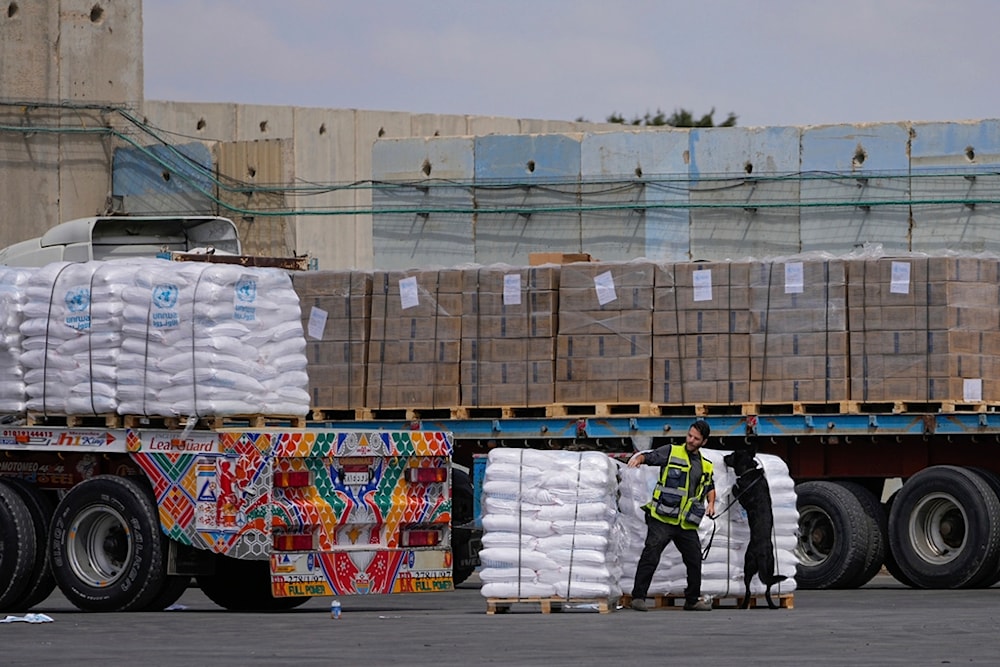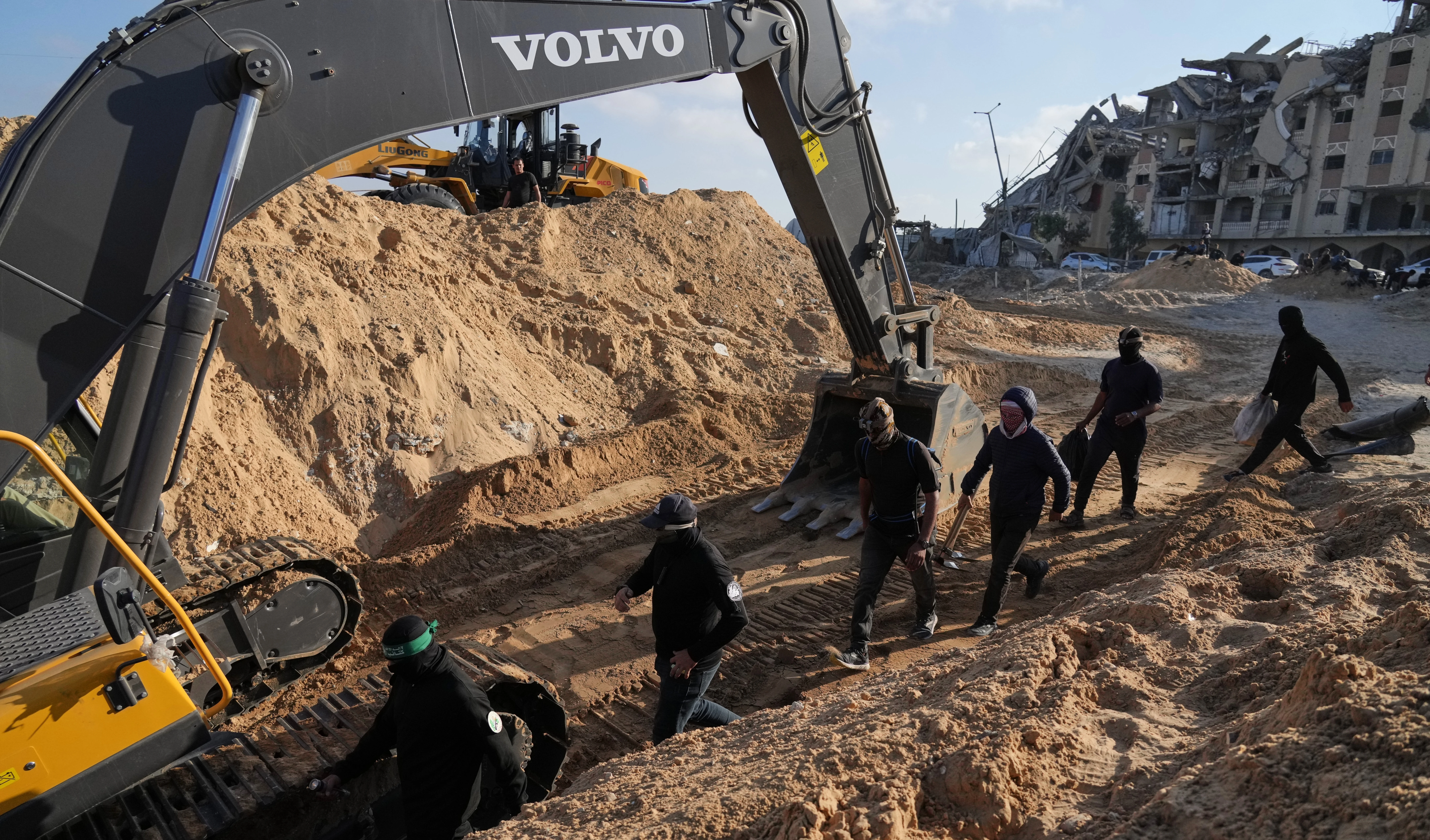No supplies, chocolate croissants: 'Israel' kills Palestinians slowly
A WSJ investigation has revealed some of the many items that 'Israel' has not allowed into the Gaza Strip, citing "dual-use" potential.
-

Trucks carrying humanitarian aid for the Gaza Strip pass through the inspection area at the Israeli-occupied Karam Abu Salem crossing into the Gaza Strip, occupied Palestine, on March 14, 2024 (AP)
"Israel" has inconsistently rejected allowing multiple aid-related items to reach the Gaza Strip, citing security reasons.
An investigation by The Washington Post has revealed that 25 United Nations agencies and donor countries inquired about the permissibility of delivering several essential items to the Gaza Strip, which was met by Israeli dismissal.
Things such as basic food items, water, and blankets do not require the approval of Israeli occupation authorities, while sanitation, medical, and shelter items have often been turned back at crossings. Aid organizations have opted to inquire about the permissibility of allowing certain items into the besieged territory, rather than sending the items that may be blocked.
"Pre-dispatch approvals and border inspections" have been "inconsistent," aid organizations told WSJ.
The Israeli Coordination of Government Activities in the Territories (COGAT) is the agency responsible for assessing which items will be allowed into the Gaza Strip. COGAT claimed that the comments of aid organizations are "false" and that it permits the entry of humanitarian supplies upon inspection.
Read more: International aid agencies condemn six-month Israeli war on Gaza
On the other hand, the UN and other aid agencies have listed several items that "Israel's" COGAT has rejected, including:
Medical equipment
- Anesthetics
- Cardiac catheters
- Crutches
- Field hospital boxes
- Maternity kits
- Medical threads in reproductive health kits
- Medical scissors in child aid kits
- Obstetric clamps
- Oxygen concentrators
- Oxygen cylinders
- Scissors and scalpels in midwifery kits
- Surgical tools for doctors
- Ultrasound equipment
- Ventilators
- Wheelchairs
- Glucometer
- Insulin pens for children
- X-ray machines
Water and sanitation equipment
- Chemical water quality testing kits
- Fittings for water pipeline repair
- Microbiological water-testing kits
- Tap-stand kits for water distribution
- Water filters and purification tablets
- Water pumps
- Mobile desalination units with solar systems and generators
Generators and power supply equipment
- Generators for hospitals
- Power supply equipment
- Solar panels
- Solar-powered lamps and flashlights
- Solar-powered medical refrigerators
- Spare parts for pumps and generators
Bedding
- Green tents and sleeping bags
- Prefabricated shelters
- Sleeping bags with zippers
- Tent poles
Miscellaneous
- Animal feed
- Chocolate croissants
- Stone fruits
- Water bladders
- Flak jackets and helmets for aid workers
- Nail clippers in hygiene kits
- Satellite communication kits
- Toys in wooden boxes
"You’d think after five and a half months of a crisis of this kind, the systems in place would be a bit more predictable and settled. In fact, they are not. And that’s why we’re struggling," Jamie McGoldrick, the UN humanitarian coordinator for the Gaza Strip, said when commenting on arbitrarily imposed criteria by COGAT.
This is a glimpse of what "Israel" has been not allowing into the Gaza Strip since it imposed its siege on the Gaza Strip in 2007. Occupation authorities have restricted the entry of essential goods into the Gaza Strip, claiming that objects such as building materials and sanitary equipment are "dual-use" items that could be used for both military and civilian purposes.
The "dual-use" list far exceeds the internationally recognized standard for such items, according to aid groups. As such "Israel's" siege on Gaza not only seeks to hinder the Palestinian Reisstance's development, but it particularly targets Palestinian civilians, creating a near-hellish situation for millions of displaced people living under continuous bombardment and experiencing a blatant genocide.
Read more: Destroying Gaza's healthcare system is a war crime: Foreign Policy

 4 Min Read
4 Min Read











